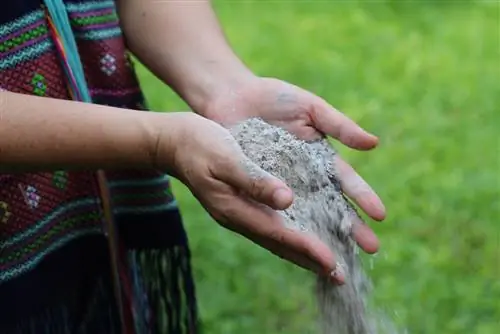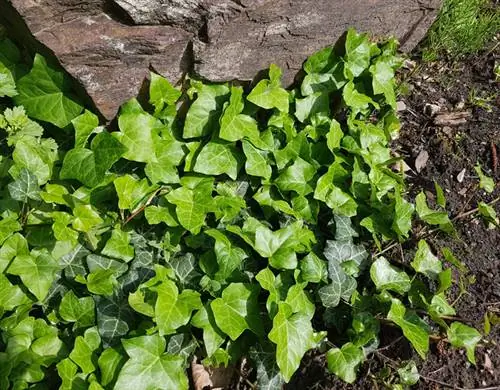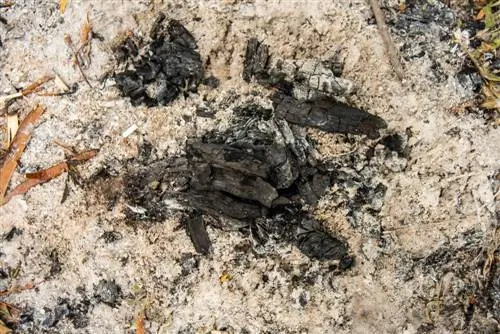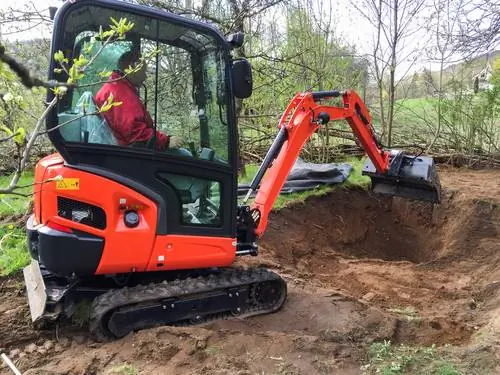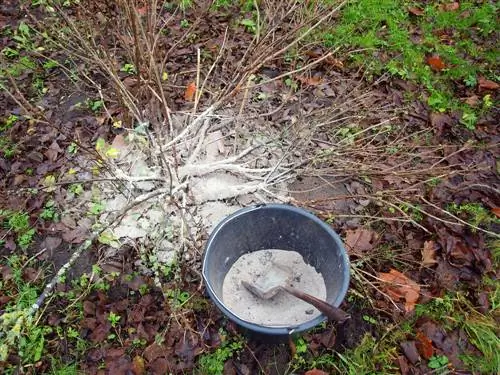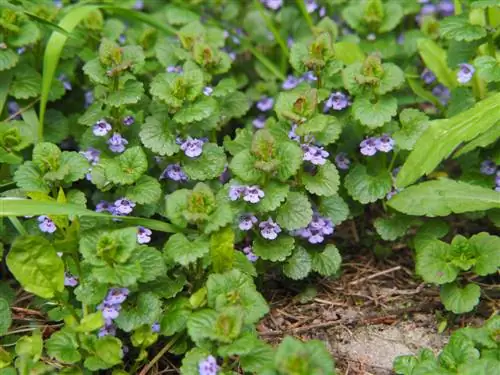- Author admin leonars@hobbygardeners.com.
- Public 2023-12-16 16:46.
- Last modified 2025-01-23 11:21.
Numerous home remedies are said to be able to remove moss or prevent its growth. While some actually make sense, the use of ash is at least problematic. It definitely has an effect, but it is also said to contain harmful substances.
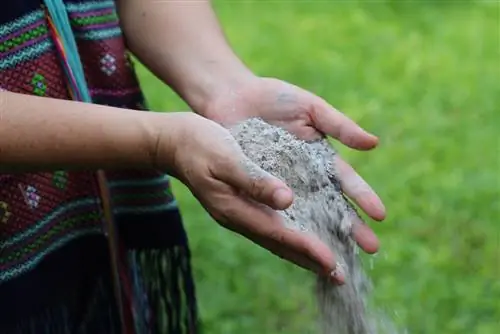
Is ash suitable for controlling moss in the lawn?
Ash against moss in the garden is problematic because, in addition to potassium, it also contains pollutants and therefore damages the soil. To remove moss, scarifying and, if necessary, treatment with sulphate of ammonia is recommended instead of using ash.
Where can I use ash against moss?
Ash is recommended, for example, to remove moss from the lawn. If it is scattered on the lawn in spring, the moss growing there will turn black after a few days. It can be easily removed during subsequent scarification. At the same time, the ash, with its high potassium content, acts like a fertilizer for your lawn.
Why is the use of ash not recommended?
In addition to potassium, ash also contains many pollutants, which has been found in various studies. Unfortunately, this applies not only to ash from the garden grill but also to the relatively clean ash that is produced when burning pure wood. If you scatter these ashes on your lawn, you will also bring the pollutants they contain into your garden.
What can I use instead of ashes?
Dethatching is a particularly environmentally friendly method for removing moss from the lawn. It's a strenuous job, but it's completely free of harmful substances if you use a hand scarifier. However, it is only recommended for smaller areas; it is better to work on a large lawn with a petrol-powered model (€518.00 on Amazon). Scarifying should be part of your spring lawn care.
In addition to scarifying, you can treat your lawn with sulfuric ammonia. This is not a weed killer but a type of fertilizer that lowers the pH of the soil. Therefore, it is better not to use it on already acidic soil.
The most important things in brief:
- contains a lot of potassium
- often high pollutant content, even in “clean” wood ash
- Damage usually outweighs benefit
- Use in the garden is not recommended
Tip
Wood ash often has a high content of harmful substances and should therefore not be used in the garden, neither as fertilizer nor to remove moss.

